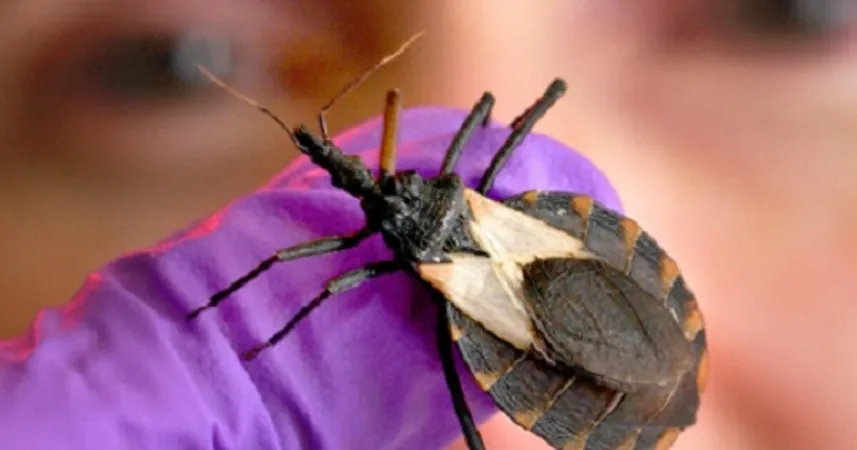
Is Chagas Disease the Next Health Crisis? Scientists Push for Action in the U.S.
2025-09-12
Author: Wai
A Growing Concern: Chagas Disease in the U.S.
In a significant warning, scientists are urging health officials to recognize Chagas disease—known colloquially as "kissing bug disease"—as endemic in the United States. While primarily a threat in Central and South America, reports of human infections have surfaced in Missouri and seven other states.
Kissing Bugs: A Cautionary Tale
The parasites that cause Chagas are carried in the feces of kissing bugs. Humans can contract the disease when the bug's droppings enter through cuts, bites, or even through the eyes or mouth. With the kissing bug's range expanding northward into southern U.S. states, experts like Daniel Hoft from St. Louis University are sounding alarms as these bugs become more prevalent.
Misclassification Leads to Low Awareness
An article in the Journal of Emerging Infectious Diseases highlights the need to classify Chagas as endemic to elevate awareness and reporting. As researchers point out, the current classification fosters a lack of understanding, leaving many unaware of the disease's presence. Dr. Phil Budge from Washington University stresses that although cases may be few, awareness and testing should become routine.
The Risks and Realities of Chagas
Symptoms of Chagas disease can be mild or mistaken for other conditions, often leading to underdiagnosis. Many may only learn of their infection when blood tests reveal something alarming. One Missouri resident, who unknowingly carried the parasite, was diagnosed after her donated blood tested positive, prompting further heart screenings.
A Call to Action for Better Awareness
The implications are clear: classifying Chagas as endemic could encourage healthcare professionals to consider it during diagnosis, leading to earlier treatment for patients. Research shows that while transmission is possible, lifestyle factors in the U.S. and different behavior of local bug species lower the likelihood of widespread outbreaks.
Hope on the Horizon: Vaccine Development
Despite the looming threat, there is hope on the horizon. Hoft’s lab is working on potential vaccines for Chagas, but progress has been sluggish due to funding challenges. The growing awareness, however, could potentially change this narrative.
Conclusion: A Call to Arms in Public Health
With Chagas disease creeping into new regions of the U.S., the call for action is urgent. Public health officials, researchers, and doctors are urged to take the potential health crisis seriously, ensuring early detection, research advancements, and hopefully, effective treatments for those affected.





 Brasil (PT)
Brasil (PT)
 Canada (EN)
Canada (EN)
 Chile (ES)
Chile (ES)
 Česko (CS)
Česko (CS)
 대한민국 (KO)
대한민국 (KO)
 España (ES)
España (ES)
 France (FR)
France (FR)
 Hong Kong (EN)
Hong Kong (EN)
 Italia (IT)
Italia (IT)
 日本 (JA)
日本 (JA)
 Magyarország (HU)
Magyarország (HU)
 Norge (NO)
Norge (NO)
 Polska (PL)
Polska (PL)
 Schweiz (DE)
Schweiz (DE)
 Singapore (EN)
Singapore (EN)
 Sverige (SV)
Sverige (SV)
 Suomi (FI)
Suomi (FI)
 Türkiye (TR)
Türkiye (TR)
 الإمارات العربية المتحدة (AR)
الإمارات العربية المتحدة (AR)